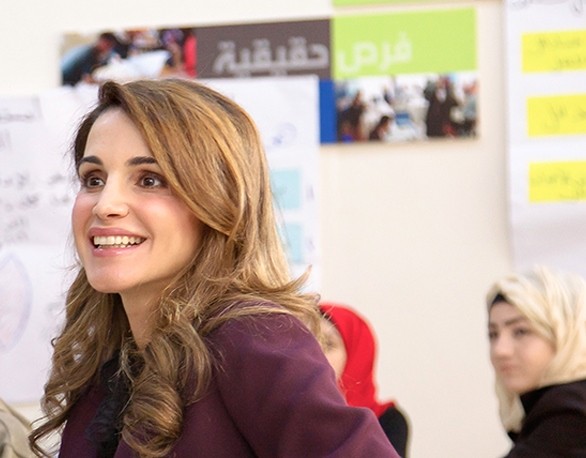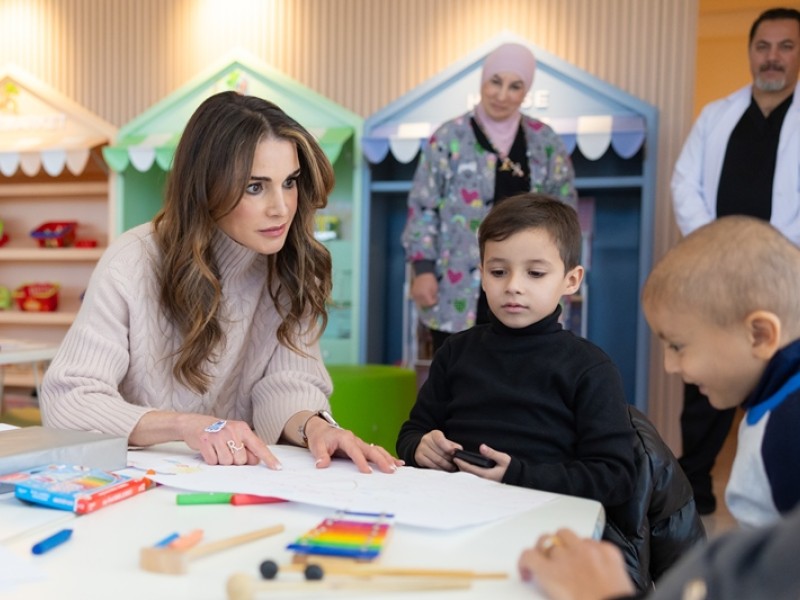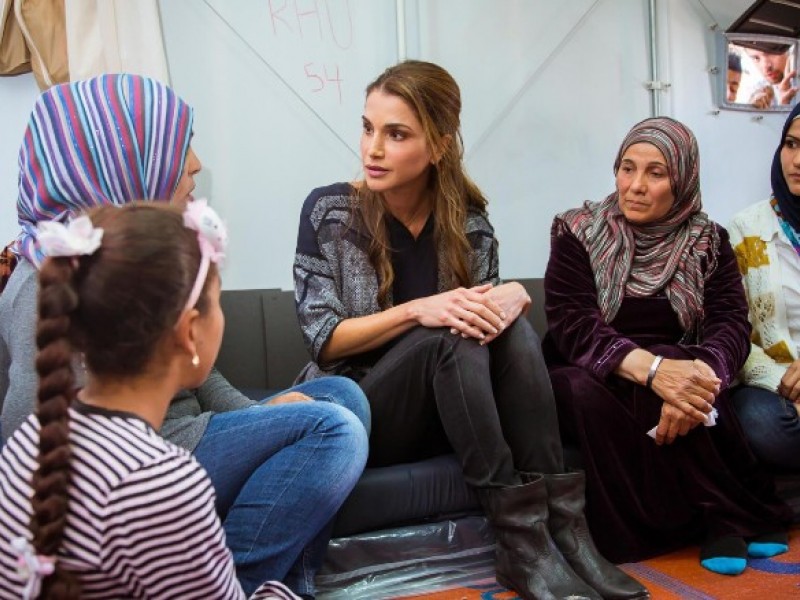Reading Is a Form of Liberation

Open Minds: The time has come for a new global narrative, declares Queen Rania of Jordan
Picking up a book is one of the cheapest entertainments around. The simple act of reading — what you are doing now — has been characterised as everything from a silent conversation and a tool for building a better life, to a refuge from reality and a technique for time travel. For me, it is a joy.
Many people hold fond memories of curling up by a fire, book in hand. Or of the nights they hid under their blankets as a child, with a torch and a storybook for company. During day-to-day life, whether we’re on an arduous journey by plane or suffering a dull moment on a train, books are by our side.
We’ve all been transported by the power of books, willingly kidnapped, bundled up and taken to distant lands and different times. With each abduction, we’ve returned unharmed, but somehow different. We’ve grown in the shared experience between reader and writer. We’ve opened our minds to the thoughts of others; books are like a B&B for the traveller.
My favourite English book has always been Pride and Prejudice (with Wuthering Heights a close second). I could not imagine a world where Mr Darcy didn’t exist, or where Heathcliff was chirpy and cheery. Neither could the millions who have also been to Netherfield Park and back; this one thing we have in common.
So, a story has the power not only to place you in another life, but to connect you to otherwise indifferent individuals. With enough books and enough people, you build a shared culture. When someone speaks of leaving a trail of breadcrumbs or says, “Tis better to have loved and lost”, the meaning is understood and powerful.
Imagine then, for a moment, you had never curled up by that fire or hid under those blankets. Imagine you had never been introduced to Mr Darcy or Heathcliff. Imagine your mind had never been taken beyond the boundaries of your brain. Imagine you couldn’t read. This is the case for 774m adults around the world. Those are the unlucky masses, 13 times the population of the UK, who have never had the tools to build a better life, taken refuge from reality, or time-travelled.
Even worse, 75m children will soon join them as illiterate adults. In a childhood that is often characterised by days with little to eat, sick or elderly relatives to care for, or dirty, airless factories to work in, not being able to read is an added punishment. It denies them any form of escape.
Reading is a form of liberation. I was reminded of this last month in South Africa when I met Gcina Mhlophe, a charismatic storyteller. Her aunt collected books even though she was illiterate, locking them in her suitcase because she knew the words hidden within were somehow important. Today, Gcina is on a quest to unlock that suitcase. She travels the country telling stories, encouraging children and adults to read, leaving behind a suitcase of books at each stop. She does it because her aunt was right: reading is important.
Learning to read and write has the amazing capacity to change lives. An education can increase your income, setting you on the road out of poverty. An education teaches you about disease, helping to reduce maternal and infant rates of mortality. An education makes a person more confident, more responsible, and allows them to contribute more to the lives of those around them and their country.
This is where the power of reading truly lies. It is that subtle force that can move mountains, as well as minds. It is that priceless ability to break through economic constraints, as well as live beyond your own physical limitations. Reading, in other words, can excavate a desperate population from the depths of destitution and provide them with the space, the time, the energy to live their lives.
That’s why literacy is so vital. This week, from April 20 to 26, the Global Campaign for Education — an organisation striving for the millennial ambition of education for all — has organised a global call to put children into classrooms by focusing on literacy. Across the world, children, teachers, adult learners, campaigners and parents will gather together for the The Big Read. A single book, translated into multiple languages, will be distributed for them to read and, at the end, sign their name to demand from their leaders that everyone be entitled to an education.
Beyond the implications of the event, as everyone turns to that first page in an act of human solidarity, there is a deeper, more forceful significance. Millions across the world will read the stories and become connected as the same characters and images are conjured in their heads, as the narratives and plots play out in their imaginations. It could, genuinely, be a rare contribution to a global culture.
My hope is that education will be recognised and valued for bringing people not just personal development but social development, too. Reading, a fundamental building block of education, is a good place to start, because, as a South African author once said: “To read is to empower. To empower is to write. To write is to influence. To influence is to change. To change is to live.”
Source
© Copyright, The Sunday Times
مواضيع مختارة
موقع جلالة الملكة رانيا العبدالله الرسمي
هذا الموقع الإلكتروني لا يدعم متصفحات الإنترنت القديمة. الرجاء تحديث متصفح الإنترنت إلى نسخة أحدث من إنترنت إكسبلورر 9
متصفح الإنترنت الذي تستخدمه قديم. لتحسين مستوى الأمان عند تصفح مواقع الإنترنت و مشاهدتها بالشكل الصحيح و بفعالية افضل قم بتحديث متصفح الإنترنت الخاص بك



